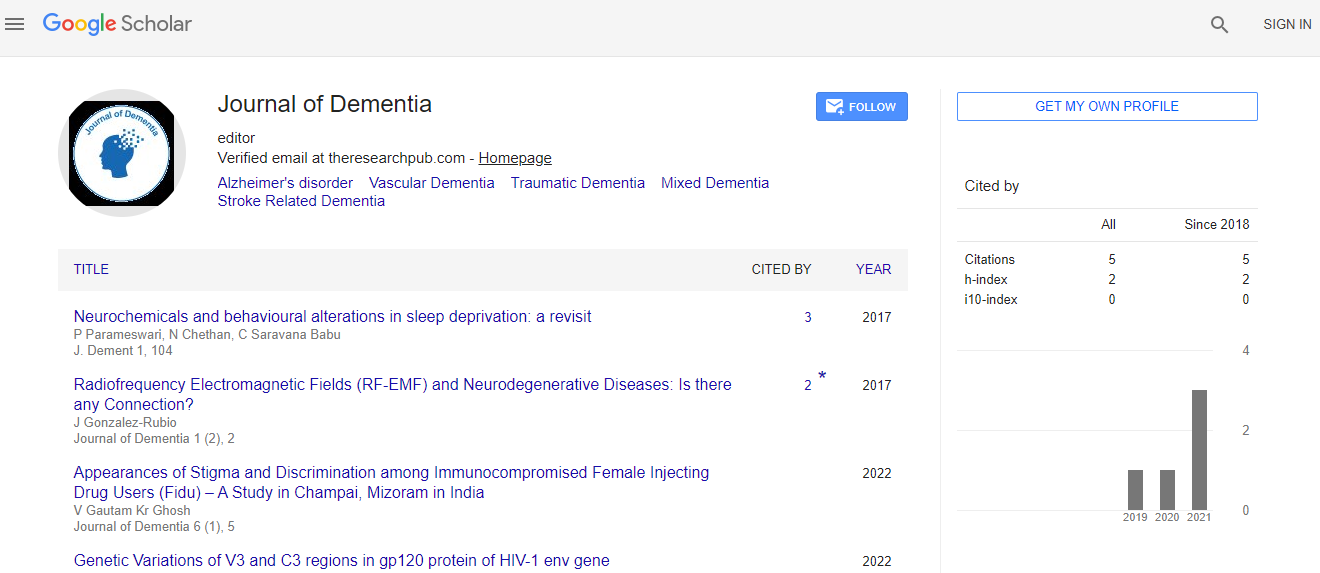Biomarkers for Early Detection of Dementia: Current Progress and Future Directions
*Corresponding Author: Suzuki Aki, Department of Medicine or Neurology, Sultan Qaboos University (SQU), Oman, Email: akiuzu098@gmail.comReceived Date: Jan 01, 2025 / Published Date: Jan 30, 2025
Citation: Suzuki A (2025) Biomarkers for Early Detection of Dementia: CurrentProgress and Future Directions J Dement 9: 254.
Copyright: © 2025 Suzuki A. This is an open-access article distributed under theterms of the Creative Commons Attribution License, which permits unrestricteduse, distribution, and reproduction in any medium, provided the original author andsource are credited.
Abstract
The early detection of dementia is essential for effective management and intervention. Biomarkers have emerged as critical tools for diagnosing dementia at the earliest stages, facilitating timely treatment and potentially altering the disease trajectory. This review explores the current progress in identifying and validating biomarkers for dementia, focusing on those associated with Alzheimer’s disease, the most prevalent form of dementia. We examine neuroimaging markers, cerebrospinal fluid (CSF) biomarkers, blood-based biomarkers, and genetic markers, discussing their sensitivity, specificity, and clinical applicability. Additionally, the review highlights the challenges in biomarker validation, the need for standardized methodologies, and the integration of multi-modal biomarkers for improved diagnostic accuracy. Finally, we discuss emerging technologies and future directions in biomarker research, including the potential role of liquid biopsy, artificial intelligence, and personalized medicine in revolutionizing early dementia detection. This review offers a comprehensive overview of current trends and presents a roadmap for future advancements in dementia biomarker discovery.

